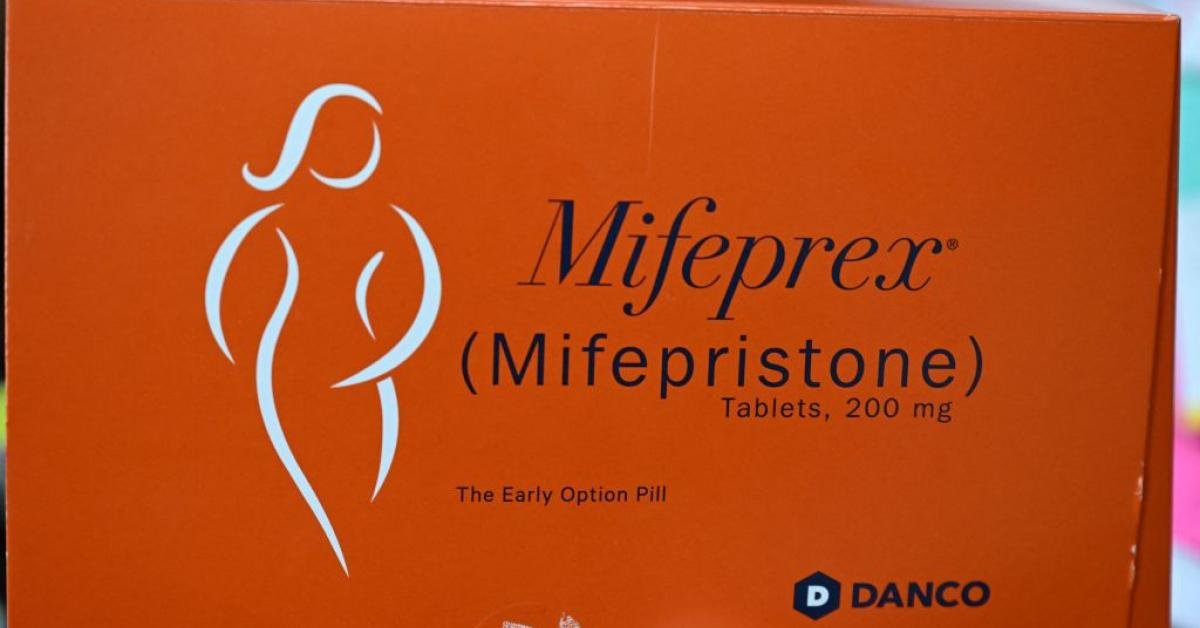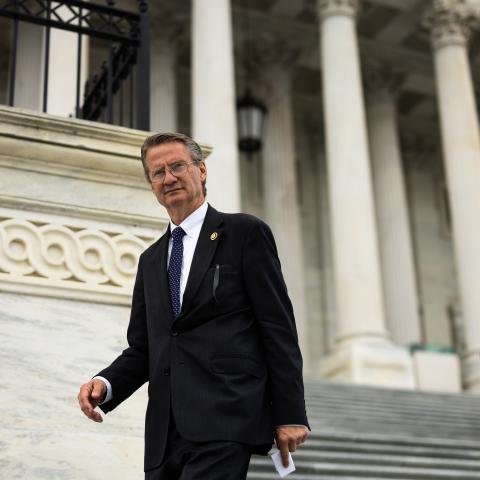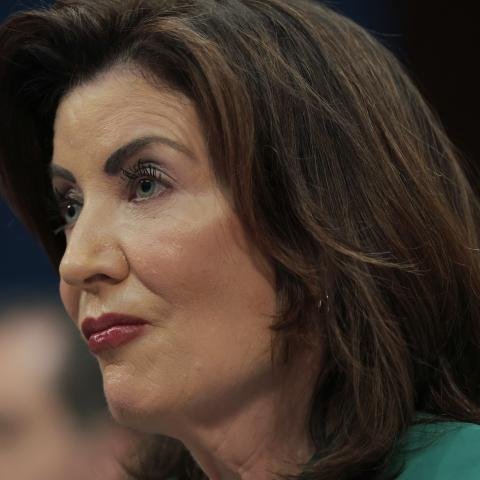
Some pro-life pregnancy centers in California promote so-called abortion pill reversal on their websites, while others go further by referring clients to providers or providing APR themselves, for free and by accepting insurance. They fundraise off their APR work.
Does any of that qualify as “commercial speech,” which enjoys less First Amendment protection than noncommercial speech?
The 9th U.S. Circuit Court of Appeals grappled with the question at two hearings Thursday by different centers seeking injunctions against state Attorney General Rob Bonta’s crackdown on APR under the Golden State’s unfair competition and false advertising laws.
The three-judge panel, appointed by presidents Clinton, Trump and Biden, grilled Alliance Defending Freedom and Thomas More Society lawyers about how their arguments wouldn’t blow a hole in California law for certain commercial entities or nonprofits or specific activities.
Questioning suggests TMS client Culture of Life Family Services, a Catholic nonprofit, has the harder sell than do ADF clients National Institutes of Family and Life Advocates, a pregnancy center network, and SCV Pregnancy Center, based on what each provides and how.
TMS communications director Katie Clancy told Just the News COLFS is a “fully state-licensed medical clinic” that provides APR “regardless of ability to pay, but it will accept insurance at the patient’s discretion.” Not all NIFLA affiliates offer APR, just promote the protocol.
California Deputy Attorney General Erica Connolly, who occasionally mixed up the facts of each case in arguing both, got surprising pushback from Biden-nominated Judge Anthony Johnstone as well as Trump-nominated Eric Miller for failing to articulate “the state’s interest” in regulating COLFS’ speech, which U.S. District Judge Gabriel Curiel himself supplied.
“You found a case where we’ve been able to leap ahead of the government itself in asserting its own interests in a heightened scrutiny case,” Johnstone said, asking for a previous case where the government got a pass on that element of the Supreme Court’s four-part Central Hudson test for regulating commercial speech.
Judge should have realized ‘I don’t have a place here to crush scientific debate’
California made itself the poster boy for violating the First Amendment rights of pro-life pregnancy centers when SCOTUS blocked its compelled-speech law in 2018, but Bonta and other states’ Democratic AGs have tried other ways to control their speech.
Bonta insists there’s “no credible scientific evidence” that supplemental progesterone, a natural pregnancy hormone, counteracts pregnancy-ending mifepristone “without harmful effects or that APR is safe,” Judge Curiel wrote in denying COLFS’ preliminary injunction.
Yet a leading reproductive health researcher at Yale said in 2017 he’d recommend progesterone to his own daughter if she accidentally took mifepristone, saying it “makes biological sense,” and the FDA’s mifepristone approval 25 years ago includes a “pharmacological review” that found it’s “antagonized by progesterone allowing for normal pregnancy and delivery.”
Two months ago, another federal judge issued what’s believed to be the nation’s first permanent injunction against an APR ban, nearly two years after the preliminary injunction against Colorado’s law (SB 23-190), though both were limited to the plaintiffs who sued.
Doctors started prescribing supplemental progesterone to counteract mifepristone 20 years ago, and COLFS has saved 100 babies through APR since it started the practice in 2013, TMS lawyer Peter Breen told the panel. Judge Curiel should have recognized “‘I don’t have a place here to crush scientific debate.'”
It’s an “FDA-approved hormone that’s been safely used to sustain at-risk pregnancies since the 1950s,” TMS said ahead of the hearing. TMS is also defending Heartbeat International and RealOptions Obria Medical Clinics against Bonta’s APR lawsuit in state court.
“Statistics show that abortion pill reversal has likely saved over 6,000 unborn lives, and one study found a 64-68% success rate,” ADF said before its hearing, referring to a 2018 “case series” that also found “no apparent increased risk of birth defects.” Progesterone must be taken within 72 hours of mifepristone to work, it said.
The judges barely considered the evidence for and against APR, however, absorbed in what exactly constitutes commercial activity and “economic motivation” in the intersection of pro-life advocacy, charitable work, advertising and insurance reimbursements.
APR is “lawful and life-saving” and happens only with informed consent between a doctor and patient, ADF lawyer Caleb Dalton told the panel.
U.S. District Judge Hernan Vera took sides in a scientific debate and used the wrong legal standard for commercial speech to deny NIFLA and SCV a preliminary injunction, he said. The centers did not “propose a commercial transaction” as required by the IMDb precedent, he said, though Clinton-nominated Judge Johnnie Rawlinson questioned that reading.
Dalton distinguished the 9th Circuit precedent First Resort, which upheld San Francisco’s false advertising law specifically targeting pro-life pregnancy centers and came up repeatedly in both hearings Thursday, from ADF’s case because the former had explicit economic motives, such as recruitment bonuses for employees.
Miller questioned why the rarity of women seeking APR, emphasized by Dalton, would exclude it from regulation.
“Anybody selling a unique product could claim it’s not commercial speech” under that logic, the judge said.
A for-profit medical provider advertising APR would constitute commercial speech and so would the nonprofit Goodwill advertising specific products for sale, Dalton said.
Johnstone asked whether that meant a nonprofit medical center could escape commercial speech classification if a third party pays for a service. Bonta’s logic is that an environmental nonprofit shows economic motivation through a Facebook post that claims using paper straws increases marine life by 5% and gives away free paper straws, Dalton responded.
He was quick to correct Johnstone’s confusion over which plaintiff accepts insurance reimbursement – COLFS – and emphasized progesterone comes from independent third-party pharmacies for ADF’s clients. Miller questioned how the panel could devise an injunction if some but not all its clients qualify for one.
The Ariix precedent on biased product reviews, also frequently invoked Thursday, requires “primary economic motivation” to qualify as commercial speech, and even ADF’s clients who provide APR are “not making money off this” but acting “out of altruism,” Dalton said.
He tried to talk Miller out of waiting until the parallel lawsuit in state court is resolved, saying his clients’ speech is objectively chilled by Bonta’s actions. That trial has been pushed back to spring from this fall, he told Johnstone, which deputy AG Connolly confirmed.
Free progesterone not same as Walmart Black Friday deals
COLFS’ messaging looks like “classic commercial advertising” because it accepts insurance reimbursements, Miller told TMS lawyer Peter Breen, who acknowledged “it’s an odd situation” because COLFS doesn’t affirmatively reject insurance in providing free services.
Most of its clients are on MediCal public insurance, which COLFS cannot accept, but no one has to provide an insurance card, Breen said, comparing the insurance option to “taking a donation.” Sending invoices seems like commercial activity, Johnstone said, but Breen emphasized COLFS has received “minimal” third party reimbursement for the 100 babies saved.
Johnstone asked whether the 9th Circuit should look at the “entire spectrum of services” offered by COLFS, which Breen called a “full-scale medical clinic,” to decide if APR constitutes commercial speech.
“Speech doesn’t occur in a vacuum,” he said.
Even if the panel found its speech was commercial, Judge Curiel found that five of the seven categories of its speech faulted by Bonta were not “inherently misleading,” meaning they fall under the “intermediate scrutiny” standard, Breen said. (The other two were the 64-68% success rate and statement on “nonstandard situations” in which APR is performed.)
Outside of the medical context, other businesses have “loss leaders” and “giveaways to bring people in,” Johnstone said, wary of setting a precedent for COLFS in which businesses can escape false and misleading consumer protection laws for new customers. Just because a business isn’t profitable “in an instant” doesn’t make it noncommercial, he said.
COLFS is “literally just giving things away,” Breen emphasized, distinguishing its work from going to Walmart on Black Friday for heavy discounts. Bonta conceded COLFS’ doctors could say the same things about APR to patients in their offices but insists it’s verboten on a website when he could legally require “disclaimers,” Breen said.
Connolly had insisted “this is a very easy case” because COLFS advertises, provides and accepts payment for APR, which is “inherently misleading” to promote. She denied that “primary economic motivation is the be-all end-all” of commercial speech analysis, but emphasized COLFS “fundraise[s] off using their APR patients.”
Judge Curiel’s order on Bonta’s motion to dismiss said COLFS’ supposedly misleading FAQ page on APR was “informative,” so the noncommercial and commercial speech are at least “intertwined,” Breen said in rebuttal, calling solicitations “noncommercial per se.”
Not only is there no evidence of harm in the record from APR, but COLFS saved a baby’s life when Planned Parenthood told the regretful mother her child was dead, he said.




